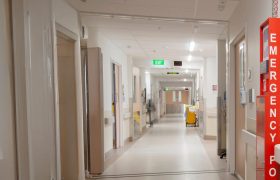911, what’s your emergency?
When you dial 911, your call is typically routed to a local emergency communications center, also known as a Public Safety Answering Point (PSAP). A trained dispatcher will answer your call and immediately ask for your location and the nature of the emergency. It’s important to stay calm and provide accurate information, including any details about injuries, medical conditions, or potential hazards at the scene.
An ambulance is on the way…and maybe more
The dispatcher uses your information to determine the appropriate response and dispatch the appropriate emergency responders to your location. They may also provide instructions over the phone, such as how to perform CPR or administer first aid, until help arrives.
Emergency responders, which may include paramedics, firefighters, and police officers, are mobilized based on the severity and type of emergency reported. They are equipped with the necessary medical supplies, and equipment to handle a wide range of situations from heart attacks to childbirth.
Emergency responders undergo special training to handle a diverse array of medical crises, fires, and law enforcement incidents. This includes skills such as cardiopulmonary resuscitation (CPR), trauma management, hazardous material identification, and evacuation procedures. But it’s not just the emergency training that makes these people so critical in tough situations — they also have strong interpersonal skills like active listening and empathy, and the ability to work as a team.
What happens when help arrives
Upon arrival, expect emergency responders to assess the scene quickly and prioritize medical care when needed. They will evaluate the condition of anyone involved, provide immediate medical interventions, and initiate transportation to a hospital if necessary.
Communication remains crucial throughout the process. It’s important to remain calm and cooperate fully with emergency responders. They are trained professionals who are there to help and ensure the best possible outcome for everyone involved. To assess the situation and provide appropriate treatment, they may need to ask you for additional information about the situation or your medical history. Be prepared to tell them what medications you take and if you have any chronic illnesses or allergies. Once they have more information about the situation, they may need to request additional resources, such as specialized medical teams or equipment.
The help you need, when you need it
After the initial response, emergency responders may continue treatment enroute to the hospital or hand over care to medical personnel upon arrival. They then provide a report to hospital staff detailing the incident, treatment provided, and the patient’s condition to ensure continuity of care.
Once you’re on your way to recovery, it’s advisable to document any relevant information — such as the date of your incident and the pick-up and drop-off locations for your medical transit — then follow up with your healthcare providers as needed. If you have MASA coverage and receive a bill for your medical transit, make sure to submit it through our member portal so that we can pay your claim.
Understanding the process and knowing what to expect can make all the difference in ensuring swift emergency care. Whether you’re at home or traveling, calling 911 initiates a coordinated effort by trained professionals to provide rapid and effective assistance during emergencies. No matter where you are, you can rely on MASA to help you with coverage of emergency medical transport costs and care services, so you never have to hesitate to get the help you need, when you need it.


